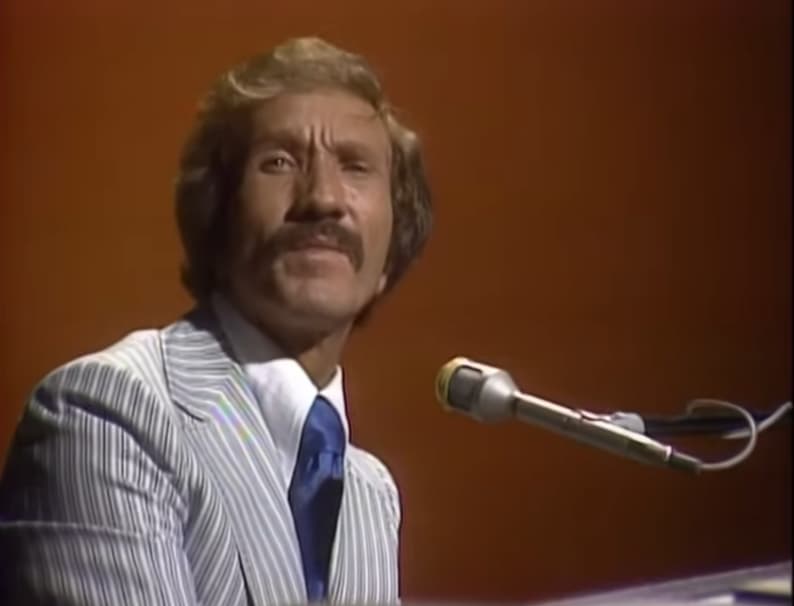
When the Lights Go Down: Remembering the Quiet Anguish of a Lost Love
The bittersweet realization that a relationship is finally, irrevocably over, leaving only tears behind.
There are certain songs that, the moment the first notes drift from the speaker, transport you back in time, not just to a period of history, but to a specific, deeply felt emotion. Marty Robbins’ “It’s Crying Time” is one of those timeless pieces, a soft-spoken, yet profoundly moving ballad that captures the inescapable sorrow of a final goodbye.
While the search results for a single titled “It’s Crying Time” by Marty Robbins are not explicitly clear about its exact chart position or a specific single release under that exact title, we can place this beautiful, melancholic song squarely within the early to mid-1960s—a period when Robbins, already a country and pop crossover sensation, was mastering the art of the tender, sophisticated heartbreak ballad. He recorded a number of songs around this time using the word “crying” in the title, such as his 1952 single “Crying ‘Cause I Love You” and 1953’s hit “I Couldn’t Keep From Crying” (which peaked at #5 on the Country charts), earning him the nickname “Mr. Teardrop” among some. Our song, “It’s Crying Time,” while sometimes mistakenly conflated with Buck Owens’ 1964 hit of a similar name (“Crying Time“), finds its natural place in Robbins’ extensive catalog of sentimental songs, particularly those collected on albums like his 1961 release, Just a Little Sentimental. It belongs to the same vein of elegant, mature sorrow that defined his transition from honky-tonk star to a versatile crooner comfortable with lush orchestration. It’s the kind of song that felt—and still feels—less like a catchy tune and more like a hushed confession.
The meaning of “It’s Crying Time” is utterly straightforward, yet devastatingly universal. It’s the moment of ultimate surrender to grief. The story behind it isn’t one of grand tragedy or a saloon shootout like the one in his epic masterpiece “El Paso“; rather, it is the quiet, internal drama that plays out when a relationship ends, not with a bang, but with a weary sigh. The lyrics speak of the realization that all the pretense, the fighting, and the hoping are finally over. The time for denial and pride is done. It’s a song about standing in the empty aftermath of love, where the only thing left to do is let the tears fall, fully and completely.
Robbins delivers the song with that unmistakable, smooth baritone—a voice that could deliver the thrilling narrative of a Western gunfighter or the quiet ache of a broken heart with equal conviction. His phrasing is intimate, almost conversational, making you feel as if he’s sitting right across from you, sharing his deepest regret. For listeners of a certain age, these songs were the soundtrack to life’s inevitable disappointments. They offered a validation that your pain was real, worthy of a beautiful melody and an honest lyric. You didn’t just listen to a Marty Robbins song; you lived it. It’s the song you played late at night, the lamp low, the memory of a past love just sharp enough to hurt, but distant enough to be cherished. It reminds us that even after all these years, some heartbreaks never fully heal—they just find a quiet place to reside.